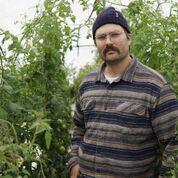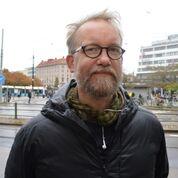Urban Agriculture gives sustainable food-production and new work opportunities
Rapidly growing cities set new demands for sustainable food production. The ‘Green Production’ project focused on urban agriculture and has made contributions to developing new business models. The ‘Foodmaker’ course has been popular amongst both professional chefs, restaurant owners, food and sustainability interested peoples and civil servants.
With an increased urbanisation it is necessary to understand where our food comes from, i.e. where and how it is produced. The demand for locally produced food has increased among citizens. Green Production was a project within Mistra Urban Futures which focused on the need for more and better urban farming and more locally produced food.

Demand for education in the field of urban agriculture
The project started in 2013 to map people and fields of activities that were active or were affected by urban agriculture in Gothenburg, such as secondary schools with agricultural profile, existing activities and land-owners. Together, two focus areas were identified. The first was to cater for the need of education within the field of food and farming and the second to identify new business models for urban agriculture.
“Growing food in the city was fairly new at that time and we saw that the interest for urban farming started to increase. Our aim was to create possibilities for more and new actors to get the chance to grow food in the city. There was a need for more education, new business models and more networking”, Martin Berg, says.

Focused on cooperative agriculture
‘Green production’ particularly focused on cooperative agriculture . This could mean that a group of consumers or citizens own a farm together. It could also mean that it is “producer-driven”, which means that a producer has customers that may pre-order a certain amount of the products that are planned for. Through Green Production, a range of activities to strengthen the cooperative agriculture in West Sweden were carried out in West Sweden. Today, the business-models that have been identified are used in several organisations such as ‘Lilla Jordbruket in Bergum’ (a suburban area close to Gothenburg), ‘Bossgården in Tidaholm’ (West Sweden) and Kajodlingen, at Lindholmen, (close to the harbour in Gothenburg).
More people see the value of urban agriculture
More people see the value of urban agriculture, not least thanks to work done by the different local networks that have been involved in or put their efforts into the ‘Green Production’-project. Today, Martin Berg works at the Property management administration, in the City of Gothenburg, and he has brought knowledge and experiences with him to the city. In his opinion, the city is now in a situation where it contributes to the development of sustainable methods for food production in Gothenburg and its surroundings.
“These organisations create new job opportunities and potentially several more in the future, in particular in areas with agricultural land that is not fully used, not least in Gothenburg.”
“Small scale food-production increases the attraction of the farming areas and surroundings and creates a larger biological diversity. That is something tourists and citizens alike are interested in. We need to make food-production more visible in the city. It is very pedagogical for the consumer to see and learn the whole process”, Martin Berg, says.

Foodmaker-course started and many participated
'Green Production’ built knowledge and carried out research by gathering important local actors. It was important for the project that knowledge about green production was shared among entrepreneurs. The social company Changemaker started a course tailored for a folk high-school about the green production.
“We transformed the experiences from green production and designed a course. 35 persons applied for the first course in just two weeks. Among them, there were civil servants, professional chefs, hobby growers and restaurant-owners”, Per Myrén says, project leader for the ’Food-maker’ course.
The course has since then been arranged six times, with over 300 participants in total.
Per Myrén says there has been a specific need to learn more about food-production, food-security and skills of growing.
“The course is about food, processing food and eco system-services but also how to grow, process and logistics of food-production. Through this course 'Foodmaker' our aim is to follow the level or point from soil to table.
The course covers different aspects of urban farming, including its limitations. According to Per Myrén this gives the basis for the course’s credibility:
“There are great possibilities to grow food in the city. But if you don’t have the right skills you might believe that food and urban farming are much easier than it really is and it is important to understand the limits for what one can do in a city.”
Project facts:
Project title: Green Production - Growing food and work in the city
Partners: Chalmers University of Technology, IVL Swedish Environmental Research Institute, Studiefrämjandet, County Administrative Board of Vastra Gotaland , Pilotprojektkontoret, City of Gothenburg (through: the Property Management Administration, Development North East (UNO - Utveckling Nordost) and the Environmental Administration), Stadsjord, Coompanion and Changemaker.
Project period: Jan 2013 - April 2015
Financier: The project has been granted financial support from the Delegation for Sustainable Cities.